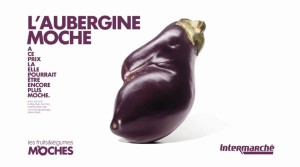I’ll start this post by admitting that I knew nothing about European Parliament’s resolution to reduce food waste until the adorable ads, videos, and infographics on this topic started appearing on my Pinterest feed. I was excited to develop this theme because I thought the visuals would pique the students’ interest in the topic. Although I originally thought I would add this theme to my AP curriculum (because of its fit with Global Challenges), I realized as I began to create learning activities that students at a lower proficiency level would be able to interpret the materials I had chosen. I loved the idea of being able to introduce an AP Theme at this level of instruction!
Unit Goals/Can-Do Statements
I chose the following Novice High ACTFL Can-Do Statements as the learning goals for this unit.
Presentational Writing: I can write basic information about things I have learned.
Presentational Writing: I can write information about my daily life in a letter, blog, discussion board, or email message.
Presentational Speaking: I can present basic information about things I have learned using phrases and simple sentences.
Presentational Speaking: I can present information about others using phrases and simple sentences
Interpersonal Communication: I can exchange information using texts, graphs, or pictures.
Interpersonal Communication: I can exchange some personal information.
Interpretive Listening: I can understand simple information when presented with pictures and graphs.
Learning Activities
This unit continues three lessons on the theme of food waste, each of which is organized around 1 or more authentic infographics/visuals. I’m anticipating that each lesson will probably take 1.5-2 class periods.
Hook: I’ve included a short video as a hook for each lesson.
Interpretive Tasks (Reading):
Lesson #1 and #3 begin with an A/B interpretive task. Students will be divided into pairs and assigned either the Partner A or the Partner B infographic + corresponding comprehension guide.
Lessons #2 begins with an authentic visual listing ways to prevent food waste.
Interpersonal Tasks:
In Lesson #1 and #3, the students will discuss the information from their respective infographics in order to complete a graphic organizer.
In Lesson #2, the students will interview each other about their own habits as they refer to food waste.
Presentational Tasks:
Speaking: Each lesson includes a directive to be prepared to present the information from the interpersonal task orally. I will call on just a few students to do so each time, as a formative assessment.
Writing: Each lesson has a written task which involves synthesizing the information from the interpretive/interpersonal tasks. In Lesson #1, they will write a message in which they summarize what they learned about food waste. In Lesson #2, they will write a note to their partner, based on his/her responses to the interview questions. In Lesson #3, they will write a short report comparing food waste in France and Canada.
Interpretive Tasks: Listening
At the end of each unit I included an authentic video and corresponding comprehension guide. I’ve placed this task at the end of the unit because I think that the students will be more prepared for it after completing the other tasks. I am expecting these tasks to be extremely challenging for the students and I would only consider their work as a formative assessment. In addition, I will provide extensive support in terms of playing the video several times, stopping the video at key points, or arranging to have the students complete the activities individually, using the classroom computers, so they can pause and replay as needed.
Here’s a link to the unit Le Gaspillage Alimentaire
(I’ll include the IPA in my next post).
Feel free to use any of these activities if you find they fit with your style and curriculum—just proofread for errors, especially since I haven’t used them yet.
I’d love to hear any feedback you have on this unit!

